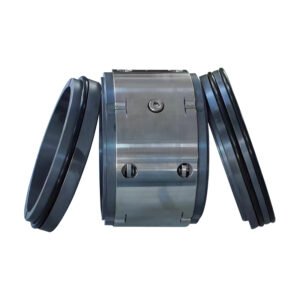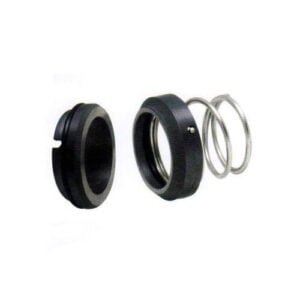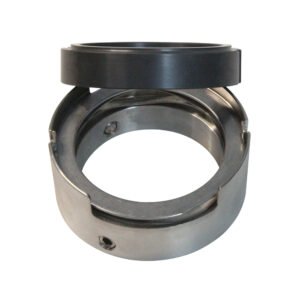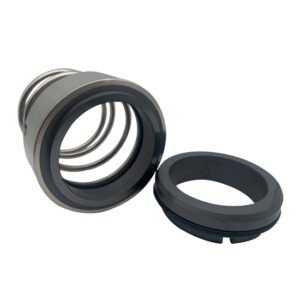Water Pump Seals
Home >> Mechanical Seals >> Water Pump Seals
Have Query?
Best Water Pump Seals for machines at affordable rates
A water pump seal plays a principal role in the efficient or leak-proof operation of all pumps in various industries. Mechanical seals of this pump are erected for preventing fluid leakage between the rotating shaft of the pump to sustain the total integrity: performance of the system.
This guide will thoroughly explain you with the different types, materials used in water pump seals, applications, and maintenance so that you gain an understanding to make informed decisions for your pumping systems.
What are Water Pump Seals?
Water pump seals are mechanical devices that produce the seal between the rotary shaft and stationary pump casing. They maintain the system pressure against leakage of pumped liquid through the shaft, with resulting contamination safeguards and extension of pump service life. In general, they are critical applications where leakage from an operational standpoint leads to inefficiencies or damages.
Types of Water Pump Seals
- Mechanical Seal
Mechanical seals would be the typical type of seal in a centrifugal pump. A rotating ring is connected to the shaft, and the other, stationary ring is fixed to the pump casing. The faces of the rings are lapped to a fine finish, and the two rings are kept in contact with springs or other mechanisms to create a seal. Reliable and well-used by a wide range of application types, mechanical seals can be adopted.
- Lip Seal
Also known as radial shaft seals, lip seals prevent leakages between the rotating shaft and the stationary pump housing. Typically this is made of elastomers that provide a tight seal with no lubrication required. This is found in less demanding work of pumped cold fluids, which will have mild environmental conditions.
- Bellow Seal
The operation between the rotating and stationary functions is persuaded by the flexible bellows diaphragm contact seal unit. The flexibility of bellows helps even out axial movement or misalignment, making them particularly suitable for applications using solids or slurries. They are specifically suited for pumps handling abrasive or viscous fluids.
Materials Used in Water Pump Seals
Materials selection for water pump seals is important to achieve compatibility with the pumped fluid and other operating conditions. Some are listed below:
- Ceramic: Used for stationary faces due to its hardness and resistance to wear.
- Carbon/Graphite: These materials are used for the rotating faces because of self-lubricating characteristics and high temperature endurance.
- Silicon Carbide: It has very good wear resistance, ideal for abrasive fluids.
- Tungsten Carbide: High strength, used in heavy-duty applications.
- Elastomers (for example, NBR, EPDM, FKM): These are sealing components that prevent leakage and selection is based on their compatibility with the media and temperature resistance.
Uses of Water Pump Seals
Water pump seals find applications in various industrial setups:
- Water Treatment Plants: Prevents leakage in pumps, which are dealing with clean water or water being treated.
- Chemical Processing: In pumps transporting corrosive or hazardous chemicals.
- Food and Beverage: Ensuring sanitary conditions for pumps that come into contact with food processing.
- Mining and Minerals: Slurry pumps need seals that withstand abrasive materials.
- Oil and Gas: Seal integrity in pumps operating at high pressures and temperatures.
Selecting Water Pump Seals the Right Way
Different considerations are involved in choosing the right water pump seal:
- Fluid Characteristics: It includes the chemical composition, temperature, and abrasiveness of the fluid being pumped.
- Operating Conditions: It considers pressure, speed, and temperature ranges that the seal will be subjected to.
- Seal Design: Single or double seals could be selected, depending on the leakage control requirements.
- Material Compatibility: Ensure that seals are compatible with the pumped fluid and operating environment.
- Pump Type: Any other special requirements of the pump, either centrifugal or positive displacement.
Maintenance and Trouble-shooting
Water pump seals must be maintained appropriately to give them durability and prevent inefficient pumping. Some of the main maintenance routines are:
- Periodic Inspections: Inspect seals at regular intervals for wear, leakage, or damage.
- Lubrication: Ensure proper lubrication of seals to reduce friction and wear.
- Alignment: Check the alignment of the pump shaft and seal faces to avoid uneven wear.
- Seal Replacement: Replacement should be considered at manufacturers’ suggested intervals or whenever a decline in performance is noticed.
Common Problems and Their Solutions
- Leakage: Likely to occur due to seals being worn out or damaged, replacement is imperative.
- Overheating: Causes can be traced back to poor lubrication or misalignment; it is best to nip it in the bud.
- Excessive Vibration: Due to imbalance or misalignment; fix accordingly.
Why Go for Decent Machinery?
Established Knowledge and Partner Building
We are proud to have a large network of highly skilled professionals and intense collaboration with our customers’ engineering departments. Enthusiastic innovators who believe in the positive contribution to the market through proactive customer collaborations drive us forward in various industries dealing with bearings and power transmission components.
Total Technical Support
Decent Machinery is a great deal more than just products; it comes with an extensive variety of technical support on what is now a very fast-growing market. It is very much possible to increase the business success of our customers by our strong procurement, sourcing, and customer-based support for bearing and power transmission products.
Excellence in action for your success
At Decent Machinery, we invest in and keep a great stock of our people, so we can serve our fellow bearing and power transmission industry leaders. Here we make things happen: thinking towards our expertise in the industry to get rid of all details.
FAQs About Water Pump Seals
Q1: What is the main purpose of a water pump seal?
A1: The main purpose of a water pump seal is to ensure that the pumped fluid does not leak along the rotating shaft, thus there is pressure in the system and contamination does not occur.
Q2: How frequently will one replace a water pump seal?
A2: The replacement frequency of water pump seals depends on the functioning conditions, fluid characteristics, and seal materials. Regular inspection is recommended in determining the actual replacement schedule.
Q3: Can water pump seals be repaired?
A3: Water pump seals usually cannot be repaired, having to be replaced when damaged or worn. Repairs would likely endanger any remaining effective sealing and could easily lead to greater problems.





